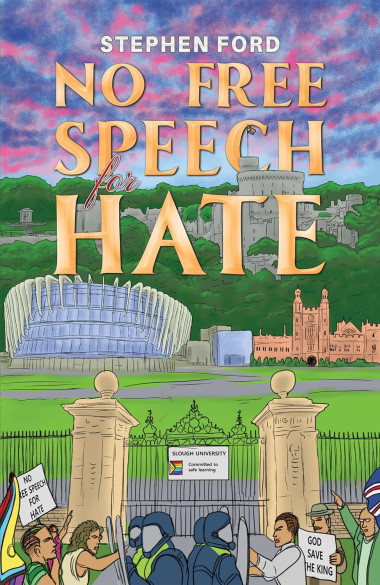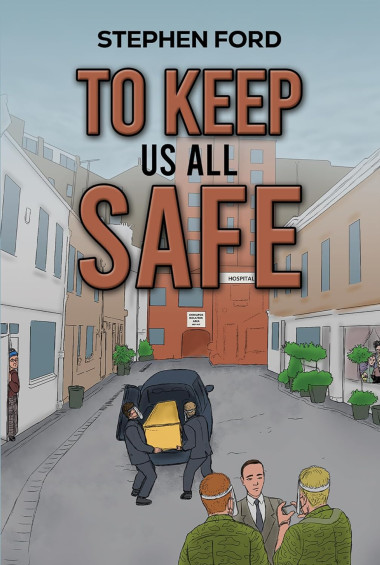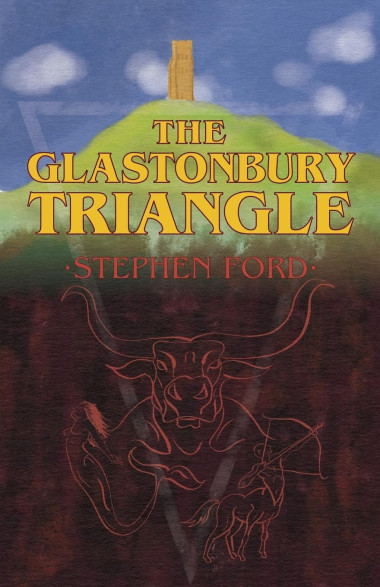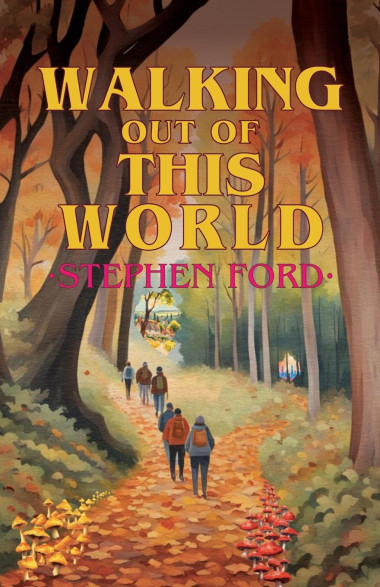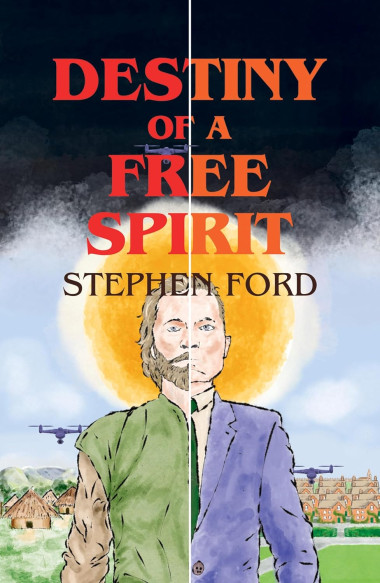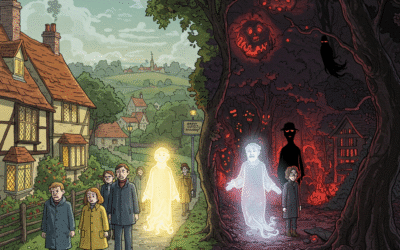
Welcome!
With each of my novels, five so far, I explore a different subject in a different setting, so with each you will get fresh insights, definitely not yet another re-work of an established formula.
My characters, fully fleshed out personalities assembled from a lifetime of observation of my fellow humans, are placed on challenging situations, facing dilemmas with choices that will determine not only their own fate, but that of their loved ones and wider society.
Using satire, pathos and humour, I explore the nature of mankind and how we are shaped by politics, technology and the natural world, the dystopias we might create and how we might escape.
Read my blog on Medium.com
Book news and updates
My Thoughts on Things
This is where you can find my latest writings, whether they be my novels, five so far, or postings on Medium and Instagram, add yourself to my mailing list or contact me to discuss anything I have written or posted online. My novels are: Destiny of a Free Spirit,...
Stephen Ford’s No Free Speech for Hate is a provocative and unsettling dystopian novel that explores the fragility of liberty in a society that mistakes censorship for moral progress. Set in a fractured near-future Britain—where the monarchy has been abolished, the United Kingdom broken apart, and universities elevated to authoritarian institutions with dictatorial power to decide what the nation is allowed to think—the novel interrogates the dangerous consequences of conflating ideological orthodoxy with virtue.
Ford’s narrative strength lies in the way he dramatizes the bureaucratic banality of repression. Scenes of safety officers rifling through children’s bedrooms for “heteronormative” novels, or students being disciplined for wearing a poppy, show how intrusive systems of control operate not only through violence but through petty surveillance, humiliation, and the erasure of cultural memory. The slogan “No Free Speech for Hate,” repeated throughout the novel, becomes chilling in its elasticity: “hate” is simply whatever the ruling consensus finds uncomfortable.
Thematically, No Free Speech for Hate is less a polemic than a cautionary tale. Ford raises questions about the very nature of truth, debate, and historical memory. Through the persecuted academic Jeremy Fitzregal, who argues for a more nuanced view of British imperialism, the book asks whether scholarship can survive when official committees determine which interpretations are permissible. These debates are presented with narrative tension rather than academic detachment, making the novel readable as both political thriller and philosophical fable.
Our Verdict: A timely, unsettling novel that confronts readers with urgent questions about freedom, ideology, and the perils of enforced conformity. It will resonate with anyone interested in contemporary debates about free expression, cancel culture, and the shifting boundaries of tolerance. Readers of dystopian fiction, political satire, and cautionary social commentary—from Orwell and Huxley to Atwood—will find Ford’s vision both provocative and disturbingly plausible.
It is an unreservedly recommended Golden Quill read!

Reviewed by Stephen Christopher for Readers Favorite
Simon Chewton is a journalist for The Daily Trumpet, and he has stumbled upon some unusual things going on in Glastonbury. A group of new-age feminists is encouraging people, men and women, to join their community, one without technology, and where women rule. Philomena is the beautiful, albeit at times frightening, leader of the group. When rumors abound that the group may in fact be a Satanic cult, and with the spotting of giant extinct creatures like saber cats and woolly mammoths, Simon smells a newspaper story worth investigating. It’s when people start to go missing, including his girlfriend Jenny, that he decides to go ahead and join the cult. Once he gets there, he stumbles onto something he finds impossible to believe. Can he rescue Jenny and get away from the cult with his mind and body intact? You’ll have to read The Glastonbury Triangle by Stephen Ford to find out.
The Glastonbury Triangle astonished me as I had few expectations going in, but, boy, was I surprised by an entertaining story. Simon Chewton is the everyday man who, once he steps up, manages to prove himself. Stephen Ford has created a group of fascinating, hard-to-forget characters who all assist in making this at times incredible plot work. I found myself racing through the final chapters to get to the end to find out what would happen. It’s almost impossible to put this into one genre; there’s fantasy, science fiction, drama, romance, cultism, and witchcraft all wrapped up in a thriller. Readers of any of these genres, with an open mind, will enjoy this book. There’s very little swearing, but there are some highly suggestive sex scenes, which suggest this is suited for a more mature audience.

Reviewed by Pikasho Deka for Readers’ Favorite
Walking Out of This World is a paranormal drama by Stephen Ford. Eddie takes his role as the FFWS Surrey branch Walks Secretary very seriously. On a seemingly routine walk, he leads his group on a hiking trail and comes across Miles, a mysterious man who unexpectedly takes over the group and leads them to a place called Miteby. Soon, the walkers find themselves reliving their pasts with their loved ones at the Other Side. Despite Miles` ominous warnings, however, the walkers fall prey to the tricks of Lucifix, who entraps them in the Underside, where they are haunted by the ghosts of their regrets and painful memories. But Miles is determined to rescue them. Can Eddie and his fellow walkers return to the Material World and find love?
A riveting tale about second chances, Walking Out of This World will be a treat for paranormal fiction lovers. Infusing a healthy dose of drama, mystery, and intrigue, author Stephen Ford spins an engrossing narrative that follows the stories of five people whose lives intersect in unexpected ways. It`s a story about making amends for past mistakes and finding love once again. Ford`s character-driven narrative hooks you in from the start. Eddie, Liz, Jenny, Karen, and Larry all have their own pasts to reconcile with, and their search for love and companionship leads them to become better people. The plot is paced well and full of twists and turns. I liked the ending and found it very satisfying. Overall, it`s a fantastic drama with paranormal undertones. Recommended to mystery and adventure fans.

Reviewed by David Jaggart for Readers’ Favorite
Stephen Ford`s To Keep Us All Safe revolves around Jim, an ex-environmental consultant living in England. Jim is tasked with taking care of his elderly relatives during a lockdown caused by the Chimapox pandemic. This lockdown is closely monitored by the Lockdown Patrol Volunteers and Jim`s landlady. While navigating under harsh surveillance practices and social isolation, Jim tries his best to find meaning in his life. His world quickly changes after he meets Lily, a pagan woman. Eventually, he gets pulled into a group of truth seekers who are skeptical about the role of vaccines. Jim`s bond with Lily and other neighbors inspires him to embrace new ideas about power and control. Sudden tension arises when Jim is investigated for Lily`s mysterious disappearance. But Jim believes a prominent corporate figurehead is somehow involved in this conundrum.
Through Jim`s captivating story, Stephen Ford shows how powerless human societies can become when fighting a formidable foe like a viral outbreak. At the core of this intriguing story is Jim, the protagonist, who entertains readers with an authentic characterization of a socially starved man looking to form meaningful relationships during a time when this behavior is strictly forbidden. His character adds an all-too-real element to the story. Amidst the pandemic backdrop, the author explores themes such as personal freedom, the breakdown of human connection, and the lingering consequences of a person`s actions. Although effective in combating a pandemic in many ways, lockdowns and surveillance practices are also used to show the ripple effects of control measures while reminding readers how easily political and corporate forces can infringe on a person`s rights. Overall, To Keep Us All Safe is a thought-provoking must-read for fans of political thrillers and personal drama.

Reviewed by Richard Prause for Readers` Favorite
No Free Speech for Hate by Stephen Ford presents readers with a fictional account of Britain`s future. It is a bleak reality where universities hold total power over their citizens, and free speech is a thing of the past. In fact, freedom of expression is now replaced by new ideals of inclusion and identity-based thinking. Professor Jim Hubbings lives in a world where status isn`t determined by one`s skills but by one`s acceptance of society`s ideologies. This reality is darkened when dissenters are ousted from mainstream society, while social unrest gradually builds into a fierce rebellion led by marginalized citizens. Jim’s personal life begins to slowly unravel when he`s torn between his ideals, career, and protecting his daughter, Amelia, who shows signs of ideological non-compliance.
No Free Speech for Hate is a political thriller that makes a bold statement about social control, sacrifice, and individuality. Stephen Ford`s novel will help you to reflect on the consequences of surrendering control of your life for the promise of social security. While reading, the tension between what citizens gain and lose throughout the story will truly dawn on you as a reader. The world Ford builds is extreme, but that’s what makes this novel a thought-provoking read. It’s the kind of narrative that makes you ask critical questions about equality, freedom, and whether society sometimes ventures too far when trying to accomplish conformity and social groupthink. The characters are what really bring the book together. Jim Hubbings and the people around him are complex but identifiable. You can truly feel their struggles even when some of their choices frustrate you. I love how the author presents challenging concepts about societies without coming across as monotonous or preachy. For readers curious about social conformity and how individuals fare under social pressure, this is the ideal book to read today.

Reviewed by Alissa Deann for Readers’ Favorite
Destiny of a Free Spirit by Stephen Ford is about a man named Peter Accrington. He finds a secret passage between two different realms, Ecologia and Economica. Economica is a realm controlled by a powerful AI organization called the Commission, while Ecologia is a realm where people live close to nature and follow a spiritual path tied to Gaia, the Earth mother. Peter moves between these two worlds, facing danger from wild animals, clashes of ideas, and complicated relationships. His experiences as he travels across these two realms make him think about what it really means to be free and what civilization truly is. Peter has to decide where he belongs and make a very important decision that shapes the course of his life.
One of the things I loved about this well-written book was how Stephen Ford touched on big questions about the future of humanity through Peter`s story. The way he explained the two worlds, showing their perfect and flawed natures—the difference between Economica, which is safe but fake, and Ecologia, which is dangerous but real—helped in making the book more balanced and authentic. I kept wondering whether comfort and safety are worth losing freedom and spirit. Ford`s writing is top-notch; the way the worlds, nature, control, wildlife, and technologies were described is very detailed and realistic. The actions, like when Peter fought a saber-toothed cat, were fun to read, and the discussions about Gaia, Commissum, and the meaning of life made it more philosophical and deep. Destiny of a Free Spirit maintained a seamless pace. I recommend it to readers who enjoy fiction that shows different cultures and talks about the future of human society and the influence of AI in the world.

As a writer myself, so far (five novels published so far) I have always had a male lead drawn from my own experience of life as a man.
I`m not saying the male leads I feature are all the same, they are not, nor am I saying that they are all myself, but they draw on aspects of myself blended with other men I have come to know well. So, I can claim, although you may or may not like them as people, my male leads are authentic.
My main female characters are more tricky because I can`t draw on my own direct experience in the same way. For them one of my main sources is observed behaviour of real women I have known. They are authentic when I write them because I describe, accurately I think, actual behaviour I have observed. The tricky bit is peeling back to look inside the female character`s minds, because to do that I cannot rely upon what my own feelings and motivations would have been.
Fortunately, there is a vast reservoir to draw on of outpourings from women about their experiences and feelings in a whole range of situations, which I plunder shamelessly. I sympathise with women writers because there is nothing like the same range of material from men describing their feelings. Perhaps they might learn something by reading my novels because I delve into the feelings of my male characters quite a bit, and those are real because I have drawn on my own authentic experience.
Although writing from one’s own direct experience is easier and likely to be more authentic, I don`t want to be limited to doing that.
I like to understand other people and where they are coming from, which means somehow imagining myself in their situation with their experiences. A good way of doing that is to write something from someone else`s point of view, for example someone of the opposite sex, a different race or culture, someone from history.
It is more of a risk to write from a perspective that isn’t one’s own because it would be all too easy to get it wrong, but I like to think, provided I really work at it, study it carefully, drawing on what such people say or have said, immerse myself in their persona, I can make it convincing.

With the help of a good editor and other coaching I have worked hard to hone my writing craft, in terms of style, structure and maintaining reader interest, I am confident that the quality of what I produce is good.
There is a lot more to it than just being good at writing. Imagine the book market as a football stadium crammed full of wannabe writers all clamouring to sell their literary masterpieces.
There is also a lot of chance involved. The success of a book is a bit like something posted on social media. In my experience the vast majority of posts on social media just get a handful of views if any, then all of a sudden, I’ll put one out that goes berserk. When I compare the few that go crazy with other stuff I have put out there that didn’t get any traction, there doesn’t seem any reason for it.
It’s the same with books in the marketplace. Publishers know this. They are selective in making sure that what they publish is of high enough quality, but they also know that, regardless of their selection process, at best only 10% or so will earn at least a small commercial return and only 1% will be what might be termed commercially successful. But if they weren’t careful about quality it would be much worse.
What I think this means is:
• You have no chance unless you are a good writer and to produce good product.
• Persistence is key, because, like the social media posts, most of what you put out there will flop, but keep at it and there is hope that one will eventually fly.
• You need to be lucky; the odds in the marketplace aren’t good.
So, how do I keep committed against those odds?
I believe in what I am doing. I have things to say, and I want to say them as effectively as I possibly can. I know that I can express myself effectively, more effectively than most. So, I am going to press on. If it turns out that only a small number get to benefit from my pearls of wisdom, so be it, but one day, like the social media posts that go viral, I could suddenly find I am a famous author.
In case you’re interested my published novels are:
Destiny of a Free Spirit
Walking Out of this World
The Glastonbury Triangle
No Free Speech for Hate
To Keep Us All Safe

Contact me
Ask or challenge me about anything you like.
